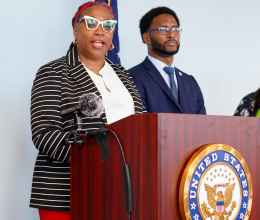
In August 2020, the ACLU of Massachusetts filed a lawsuit against the Boston Police Department (BPD) and the City of Boston, demanding information about police use of force against, and surveillance of, people in Massachusetts.
Over the preceding seventeen months, the ACLU and Taylor Campbell—a Quincy resident who believes that timely access to government records is necessary to inform public conversation—separately submitted a total of nine public records requests related to BPD practices and potential City communications with federal law enforcement. According to the complaint, the City of Boston and the BPD regularly responded with months of silence and delay. At the time of filing, all nine requests were well past-due—including four that had been pending for seven months or more.
The lawsuit responds to a longstanding pattern of delay that violates the Massachusetts Public Records Law, which generally requires municipalities to produce responsive records within 10 business days of a request. The City of Boston and BPD have repeatedly failed to produce records weeks and months past production deadlines without meaningfully engaging requesters about the existence of the records, their efforts to obtain them, or alternative production schedules.
The ACLU’s lawsuit seeks the release of several records:
- In June 2020, the ACLU and Taylor Campbell each sent public records requests regarding the BPD’s use of force during recent racial justice demonstrations in Boston, as well as City communications with federal law enforcement agencies.
- That month, the ACLU also requested information about the BPD’s use of teargas and pepper spray since 2016 to contextualize reports of its recent deployment of chemical agents.
- In September 2019, the ACLU and Campbell each sent public records requests regarding the BPD’s use of force during the so-called “Straight Pride Parade.”
- In 2019, the ACLU also requested records regarding the location of surveillance cameras in Boston, and potential communications between the BPD, the City, and federal immigration enforcement agencies.





